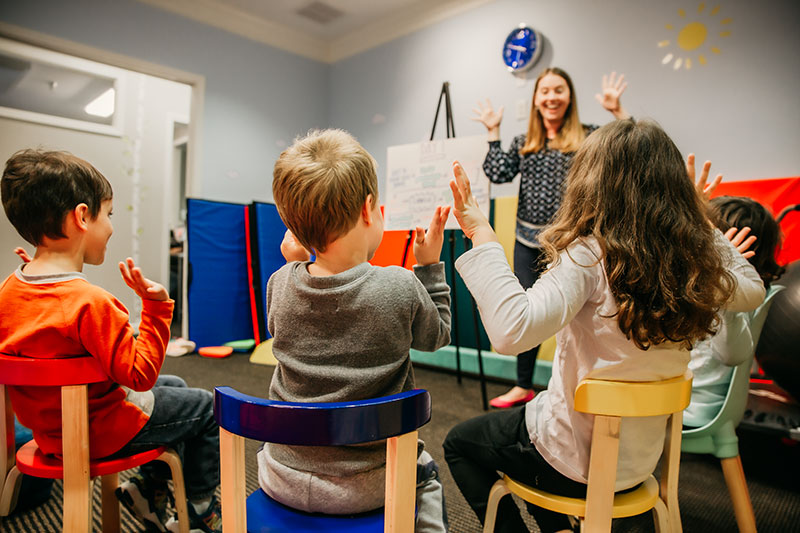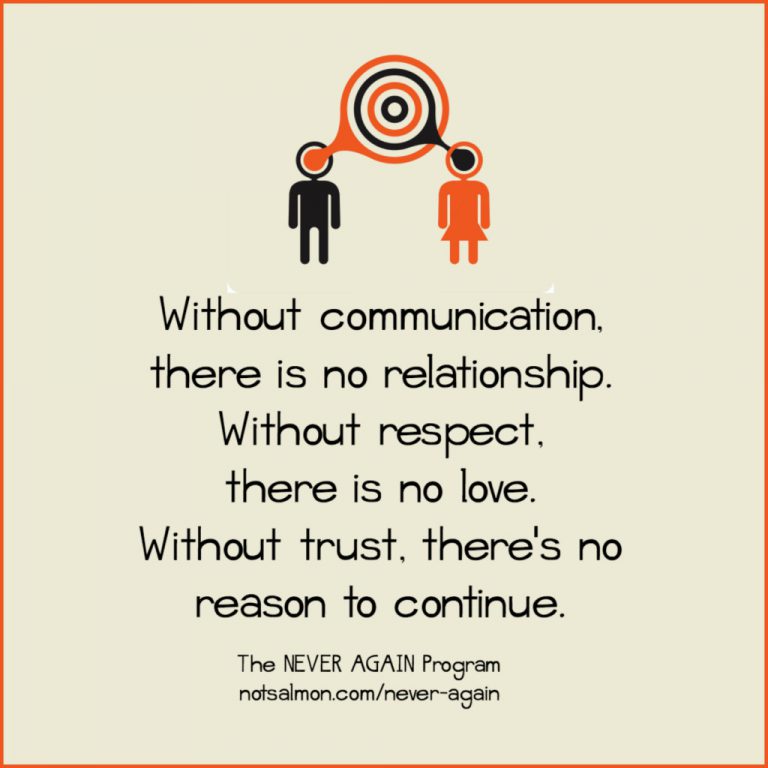What are Social Communication Skills?
Social communication skills refer to the ability to effectively express oneself, comprehend others, and engage in meaningful interactions in social settings. They encompass verbal and non-verbal communication, active listening, empathy, emotional intelligence, and the ability to adapt communication style to different situations and individuals.
In today’s interconnected world, mastering social communication skills is crucial for building and maintaining relationships, collaborating in the workplace, and navigating social situations with confidence. These skills enable individuals to convey their thoughts and ideas clearly and respectfully, understand and interpret the emotions and intentions of others, resolve conflicts, and foster mutual understanding.
Effective social communication skills enhance personal and professional relationships, promote teamwork and cooperation, and facilitate the exchange of information and ideas. By continuously developing and honing these skills, individuals can enhance their overall communication competence and thrive in various social contexts.

Credit: www.conovercompany.com
Understanding Social Communication Skills
Social communication skills refer to the ability to effectively interact and exchange information with others. These skills involve both verbal and non-verbal cues, such as active listening, body language, and empathy, creating meaningful connections in various social contexts.
Social communication skills are a fundamental aspect of human interaction. They encompass the ability to effectively convey and receive information through verbal and non-verbal means. These skills are essential for building and maintaining relationships, both personal and professional. In this section, we will delve into the definition and importance of social communication skills, as well as their impact on personal relationships.
Definition Of Social Communication Skills:
- Listening: The ability to actively listen to others, understand their perspective, and respond appropriately.
- Speaking: The capacity to express oneself clearly and confidently, using appropriate language, tone, and gestures.
- Non-verbal communication: The use of body language, facial expressions, and gestures to convey messages and understand others.
- Empathy: The capacity to understand and share the feelings and experiences of others.
- Interpretation: The skill of interpreting verbal and non-verbal cues to understand the underlying meaning of a message.
- Assertiveness: The ability to express one’s thoughts, needs, and desires in a respectful manner.
- Conflict resolution: The skill to resolve disagreements or conflicts in a constructive and respectful manner.
Importance Of Social Communication Skills In Daily Life:
- Building relationships: Effective social communication skills are crucial for establishing and nurturing relationships in various aspects of life, such as family, friendships, and work.
- Expressing emotions: These skills enable individuals to express their emotions and needs appropriately, fostering healthy and meaningful connections with others.
- Collaborating and cooperating: Social communication skills are essential for working effectively in teams, collaborating on projects, and achieving common goals.
- Problem-solving: Strong social communication skills facilitate the exchange of ideas and perspectives, leading to effective problem-solving and decision-making.
- Personal growth: Developing and honing these skills enhances self-awareness, self-expression, and personal development, contributing to overall well-being.
Impact Of Social Communication Skills On Personal Relationships:
- Improved understanding: Effective communication fosters understanding and empathy, leading to better relationships and deeper connections.
- Conflict resolution: Strong social communication skills enable individuals to address conflicts calmly, find common ground, and arrive at mutually satisfactory resolutions.
- Trust and rapport building: Good communication skills help build trust and rapport with others, creating a solid foundation for strong and lasting relationships.
- Reduced misunderstandings: Clear and concise communication reduces the likelihood of misunderstandings, avoiding unnecessary conflicts or strained relationships.
- Emotional support: Social communication skills allow individuals to provide emotional support to loved ones by actively listening, offering empathy, and responding appropriately.
Social communication skills play a vital role in our daily lives, influencing our interactions, relationships, and personal growth. Developing and honing these skills is essential for effective communication, fostering understanding, building relationships, and resolving conflicts.
Types Of Social Communication Skills
Social communication skills encompass various types of abilities that facilitate effective interpersonal interactions. These skills include active listening, nonverbal communication, empathy, assertiveness, and conflict resolution. Developing and honing these skills can enhance communication effectiveness in various personal and professional settings.
Verbal communication skills:
- Speaking clearly and effectively: Articulating thoughts and ideas in a way that can be easily understood by others is a key skill in social communication. It involves using proper enunciation, pronunciation, and pacing to ensure clear speech delivery.
- Active listening: Actively engaging in the conversation by paying attention to the speaker, asking relevant questions, and providing appropriate responses. It demonstrates your interest and understanding of what the speaker is saying.
- Using appropriate tone and language: Adapting your tone and language according to the situation and audience is crucial. Using a respectful and friendly tone helps in fostering effective communication with others.
Nonverbal communication skills:
- Body language and gestures: Body language plays a significant role in conveying messages. It includes gestures, posture, and facial expressions that reflect feelings, attitudes, and intentions.
- Facial expressions: Expressions such as smiling, frowning, or raising eyebrows can convey emotions and add meaning to verbal communication.
- Eye contact: Maintaining eye contact helps establish trust and shows that you are attentively listening to the speaker.
Written communication skills:
- Effective email and messaging communication: Writing clear, concise, and professional emails or messages can contribute to successful communication in the virtual world. It involves ensuring proper formatting, using appropriate language and tone, and organizing information logically.
- Writing clear and concise documents: Expressing thoughts and ideas concisely in written form is important for delivering information effectively. It includes using appropriate headings, bullet points, and subheadings to enhance readability.
- Proper use of grammar and punctuation: Ensuring accurate grammar and punctuation is vital for clear and professional written communication. Proper use of grammar rules and punctuation marks enhances understanding and credibility.
Developing And Enhancing Social Communication Skills
Social communication skills refer to the ability to effectively interact, express oneself, and understand others in social settings. These skills involve verbal and non-verbal cues, active listening, empathy, and the ability to adapt to different social situations. Developing and enhancing social communication skills is crucial for building relationships, resolving conflicts, and succeeding in both personal and professional life.
Building self-awareness:
- Take time to reflect on your communication style and behaviors.
- Identify your strengths and weaknesses in social communication.
- Understand how your actions and words impact others.
Recognizing personal communication strengths and weaknesses:
- Identify areas where you excel in communication.
- Recognize areas where you may struggle or need improvement.
- Consider how your strengths and weaknesses affect your interactions with others.
Identifying areas for improvement:
- Be proactive in identifying areas where you can enhance your social communication skills.
- Look for patterns or recurring challenges in your interactions.
- Seek opportunities for growth and development.
Seeking feedback from others:
- Ask trusted friends, colleagues, or mentors for honest feedback on your communication.
- Listen actively and without defensiveness to their insights.
- Use their feedback to identify areas for improvement and implement changes.
Practicing active listening:
- Engage fully in conversations by listening actively.
- Focus on the speaker and their message without distraction.
- Show interest by nodding, making eye contact, and providing verbal and nonverbal cues.
Being present in conversations:
- Be fully present in the moment during conversations.
- Avoid distractions such as checking your phone or allowing your mind to wander.
- Show genuine interest in the person you’re speaking with.
Asking clarifying questions:
- Seek clarification when you don’t fully understand what someone is saying.
- Avoid making assumptions or jumping to conclusions.
- Ask open-ended questions to encourage further discussion.
Showing empathy and understanding:
- Put yourself in others’ shoes to understand their perspective.
- Demonstrate empathy by acknowledging their feelings and validating their experiences.
- Show understanding through active listening and supportive responses.
Improving nonverbal communication:
- Maintain eye contact to show interest and engagement.
- Use appropriate body language to convey openness and attentiveness.
- Pay attention to facial expressions and gestures to better understand others’ emotions.
Developing written communication skills:
- Read and study well-written materials to improve your writing skills.
- Analyze the structure and formatting of high-quality writing.
- Take note of effective vocabulary, grammar, and sentence structures.
Practicing writing regularly:
- Set aside dedicated time to write and practice your written communication skills.
- Experiment with different writing styles and techniques.
- Challenge yourself to continuously improve your writing abilities.
Seeking guidance and feedback on written work:
- Share your writing with trusted individuals who can provide valuable feedback.
- Seek guidance from mentors or professionals to enhance your writing skills.
- Use the feedback received to refine and improve your written communication.
Remember, developing and enhancing social communication skills is an ongoing process that requires self-reflection, awareness, and practice. By investing in the improvement of your social communication abilities, you can strengthen your relationships, foster better understanding, and achieve effective communication in various contexts.
Benefits Of Strong Social Communication Skills
Social communication skills are essential for effective interaction and building strong relationships. They enable individuals to express themselves confidently, understand others effectively, and navigate social situations with ease. Mastering these skills can lead to improved personal and professional connections, enhanced teamwork, and increased opportunities for growth and success.
Effective communication is foundational to forming strong connections with others and is an essential skill in both personal and professional settings. Developing and nurturing social communication skills can bring forth numerous benefits, which include:
- Improved personal relationships: Good social communication skills enable individuals to connect and bond with others on a deeper level, fostering meaningful relationships that are built on trust, mutual respect, and understanding.
- Building trust and rapport: Effective communication allows individuals to convey their thoughts, ideas, and emotions clearly, inspiring confidence and trust in others. This helps in establishing solid relationships and building rapport with colleagues, friends, and loved ones.
- Effective conflict resolution: Strong social communication skills facilitate the resolution of conflicts by promoting open and honest dialogue. Through effective communication, individuals can express their viewpoints, listen actively, and find mutually beneficial solutions, thus avoiding conflicts from escalating.
- Enhanced empathy and understanding: By being able to effectively communicate, individuals demonstrate empathy and understanding towards others. This enables them to better comprehend and relate to different perspectives, ultimately strengthening their relationships and fostering a more inclusive environment.
- Professional success: Social communication skills significantly contribute to professional success by facilitating effective collaboration, teamwork, and leadership. Individuals who can communicate clearly, listen attentively, and express themselves persuasively often excel in the workplace.
- Strong teamwork and collaboration: Effective communication is essential for fostering strong teamwork and collaboration. It allows individuals to effectively share ideas, delegate tasks, and resolve conflicts, ultimately leading to improved productivity and successful project outcomes.
- Effective leadership and management: Possessing strong social communication skills is crucial for effective leadership and management. Leaders who can clearly articulate their vision, actively listen to their team, and provide constructive feedback are better positioned to inspire and motivate their employees.
- Improved presentation and public speaking skills: Being proficient in social communication enhances one’s presentation and public speaking skills. Effective communication helps individuals convey their message with clarity, confidence, and impact, captivating their audience and leaving a lasting impression.
- Emotional intelligence and self-awareness: Strong social communication skills are closely linked to emotional intelligence and self-awareness. Individuals who are adept at understanding their own emotions and accurately perceiving others’ emotions can navigate social interactions more effectively.
- Understanding and managing emotions: Effective communication allows individuals to express their emotions in a healthy and constructive manner. By being able to understand and manage their own emotions, individuals can develop stronger interpersonal relationships and handle difficult situations with composure.
- Developing strong interpersonal skills: Social communication skills are paramount in developing strong interpersonal skills. These skills enable individuals to build rapport, connect with others, and forge lasting personal and professional connections.
- Building resilience and adaptability: Effective communication fosters resilience and adaptability by enabling individuals to effectively navigate challenges, change, and setbacks. Strong social communication skills facilitate constructive problem-solving, effective stress management, and the ability to adapt to new situations.
Cultivating and honing social communication skills can lead to a plethora of benefits in personal and professional contexts. By actively working on improving these skills, individuals are better equipped to build strong relationships, navigate conflicts, and succeed in various areas of their lives.
Frequently Asked Questions For What Are Social Communication Skills?
What Is An Example Of Social Communication?
An example of social communication is having a conversation with a friend on social media.
What Does Social Communication Include?
Social communication refers to the exchange of information and ideas between individuals using various social platforms. It encompasses verbal and non-verbal interactions, including face-to-face conversations, phone calls, texts, and online messaging. Social communication involves the sharing of emotions, thoughts, and opinions, allowing individuals to connect and understand one another.
It also includes the use of social media platforms such as facebook, twitter, instagram, and linkedin, where users can interact, share content, and engage with others. Additionally, social communication involves the ability to listen actively and respond effectively to others, promoting effective interpersonal relationships and understanding.
What Is An Example Of Social Communication Problems?
An example of social communication problems includes difficulty maintaining eye contact, understanding nonverbal cues, and engaging in conversation.
How Can I Practice Social Communication Skills?
To practice social communication skills, engage in activities that involve interacting with others. Join clubs, volunteer, or participate in group activities to improve your communication abilities. Attend social events, where you can meet new people and engage in conversations. Practice active listening and try to understand others’ perspectives.
Be open-minded and receptive to different opinions. Use body language effectively to convey your thoughts and emotions. Maintain eye contact and use appropriate facial expressions and gestures. Practice empathy by putting yourself in others’ shoes and understanding their feelings. Work on your conversational skills by initiating conversations and asking open-ended questions.
Practice effective communication by speaking clearly and confidently. Reflect on your interactions and learn from them, making necessary adjustments to improve. Regular practice and exposure will help you develop strong social communication skills.
Conclusion
Effective social communication skills play a crucial role in our personal and professional lives. From building strong relationships to succeeding in the workplace, these skills are essential for effective communication and collaboration. By actively listening, expressing empathy, and using non-verbal cues, individuals can establish a deeper connection with others and foster understanding.
Additionally, assertiveness and conflict resolution skills help navigate challenging conversations and maintain healthy relationships. Developing social communication skills requires practice and self-awareness, but the benefits are abundant. Improved communication leads to less misunderstanding, increased productivity, and greater personal fulfillment. Whether it’s in a job interview, a team meeting, or a casual conversation with a friend, honing these skills can make a significant difference in our ability to connect with others and thrive in various social settings.
So, let’s embrace the importance of social communication skills and start investing in our growth and development in this vital area.





